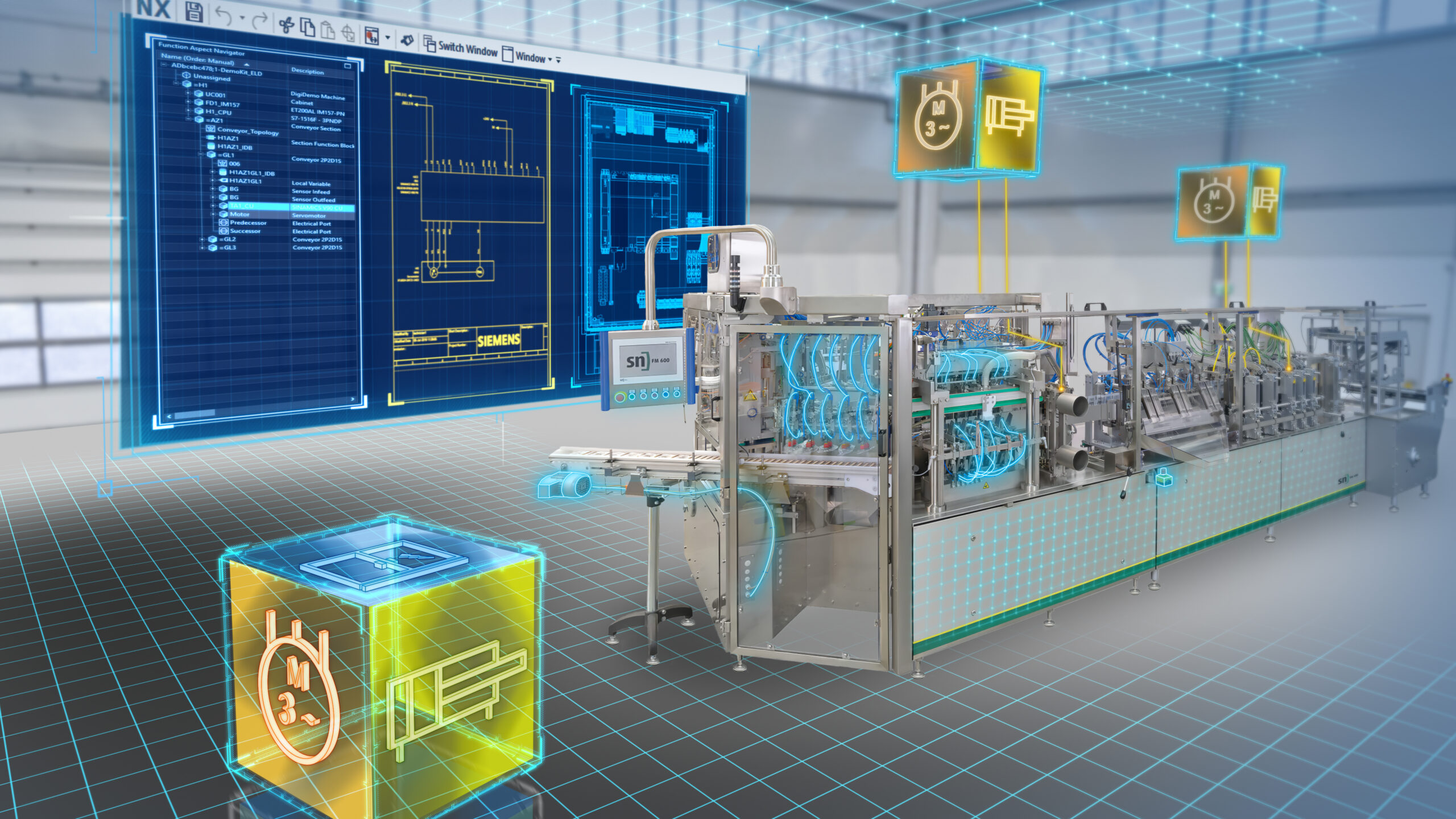Diploma in Electrical and Electronic Engineering (Level 6)
ELECTRICAL & ELECTRONIC Programs
Diploma in Electrical and Electronic Engineering (Level 6)
Overview
The NIT qualifications in Electrical and Electronic Engineering were designed for the industry and are taught, assessed and verified by local and international industry experts. They are career specific and are aimed at ensuring that the NIT students graduate as Vibrant, Skilled, Competent, and Work-prepared Entrepreneurial Technicians, Technologists, and Professionals to handle and confront the changing and demanding job roles within the Engineering industry.
Your Electrical and Electronic Engineering studies will give you a strong technical knowledge in a variety of areas, which could include electronics, signal processing, power engineering, mechatronics and engineering management. With about 30% of theoretical learning, there will typically be much more of action, hands-on, practical learning to ensure that you are adequately prepared for engineering work when you graduate.
The qualification level has broader coverage of knowledge and practical skills required for the vocational sector. The qualification has the potential to prepare learners for progression to the Bachelor of Technology in Electrical and Electronic Engineering.

Who is this qualification for?
A qualification in Electrical and Electronic Engineering will give you a career specific and practical fascinating insight into how electrical devices and technology works. With a qualification in Electrical and Electronic Engineering, you’ll have many career options. What you choose depends on what most interests you. You could consider working in built and construction, mining, system analytics maintenance, aerospace, telecommunications, robotics, broadcasting, computer engineering, nuclear engineering, etc. Whichever industry you choose to work in, you can earn a good salary as an electrical or electronic engineer, more especially once you become a member of the Engineering Council or a Chartered Engineer. The future of the world of work es increasingly becoming exiting for engineering professionals as the 21st Century is increasingly dependent on IT and Engineering specialist to lead the automated industry.
The Diploma in Electrical and Electronics Engineering (Level 6) is an ideal qualification for anyone who works in any of the below-listed fields and seeks to develop career-specific skills and gain a solid qualification in Electrical and Electronics Engineering to support his/her position and anyone who wants to enter into or has just started a career in any of the following career areas:
- Assistant Aerospace Electrical Engineering Technologist
- Assistant Electrical Control Engineering Technologist
- Assistant Electrical Project Engineering Technologist
- Assistant Electrical Design Engineering Technologist
- Assistant Electronical Engineering Technologist
- Assistant Electronical/ Electronic Installation Technologist
- Assistant Electronical/ Electronic Test Technologist
- Assistant Electronic Technologist
- Assistant Electronic Engineering Technologist
- Assistant Energy Technologist
- Assistant Electronical/ Electronic Entrepreneurial Technologist
- Assistant Field Service Engineering Technologist
- Assistant Maintenance EngineeringTechnologist
- Assistant Service Engineering Technologist

What makes this course special?
The National Institute of Technology (NIT) is one of the world’s most successful and best-preferred applied (hands-on) learning brand. The National Institute of Technology qualifications place greater emphasis on self-employment and employer engagement and work readiness. The NIT-Namibia provides 70% practical and 30% theory teaching and learning methodologies coupled with various practical learning-focused activities that fully engage our students. The NIT programs in Electrical and Electronic Engineering are work-related qualifications for students taking their first steps into employment, or for those already in employment and seeking career development opportunities.

Why you must study at NIT?
At National Institute of Technology (NIT), we know how important it is for career ambitious people to get the right education in order to start and further develop their careers.
With today’s industry and employers demanding so much more than just a qualification to contain the effects of global competition and to attain competitive edge, here are the main six (6) reasons why you must choose to study at NIT:
Work Readiness
NIT courses will give you real hands on experience in pursuing your education. It is what is called learning by doing it or action learning. Based on a 70% practical (action learning, action research, projects, reflective thinking, critical thinking, etc.) and 30% theory teaching and learning and assessments methodologies, all the NIT students become work ready (prepared) during their first year of study and graduate with strong work ethics, analytical, problem solving, communication and entrepreneurial skills which are the major factors that employers are looking for in their new recruits.
Employability
NIT’s higher vocational, technical and professional courses prepare students for employment and self-employment. The NIT courses develop a student’s employability skills as they offer the experience of real-life practical tasks and work placements. NIT’s qualifications are generally well-regarded by employers as the courses enable students to develop useful hands-on skills in respective fields of study and in critical areas such as problem solving, time management, entrepreneurial, communication, work behavior, visionary and focus minded, team work, and project planning, execution to evaluation. The knowledge and skills you get from NIT programs will make you be sought after by employers locally and globally. NIT helps students to gain strong knowledge and skills that are essential to start and successfully run their own businesses and/or to be appreciated competent and productive employees that every employer would like to hire.
Relevant
NIT courses are designed and developed with the help of the employers, industrial experts, professional bodies, higher education experts and lecturers. This keeps the NIT curriculum to be industry driven and relevant for today and the future’s job market and self-employment. NIT’s qualifications provide students with industry-specific knowledge, skills and competencies which make graduates’ work outputs to be relevant to their employers’ missions, visions and goals.
Practical Teaching and Assessments
The NIT’s teaching and learning is based on the seven (7) major principles teaching and learning through which theory knowledge is practically applied into various practical teaching and learning methods including action learning, projects supported by verifiable tangible evidences (outcomes), critical reflective thinking, case scenarios, job placements, industrial site visits, public lectures led by industrial experts, etc.
The assessment for NIT courses is largely based on regular coursework and work experience, which makes them an ideal option for those who crumble under the pressure of exams.
All the NIT programs are assessed through objective and rigor-based assignments and projects for which origination is examined through the Turnitin IT Application to ensure that each students submits his/her own true work. The outcome of these assignments must be in an implementable practical and quality standard.
Career and Education Progression
Employers value NIT’s qualifications as the courses are industry-centered and directed. In other words, unlike academic programs, the NIT courses give students the industry-specific knowledge and skills which makes them readily employable. This, combined with the problem solving, time management, entrepreneurial, communication, work behavior, visionary and focus minded, team work, and project planning skills they gained throughout their learning process give the NIT graduates a strong competitive edge to progress in senior job positions and to further pursue their postgraduate professional degrees such as Masters to Professional Doctorate Degree programs at various reputable higher education institutions/universities.
The NIT Certificate in Biomedical Sciences (Level 4) is also designed to reflect the increasing need for progression onto the high quality professional and technical education at levels 5 to 8 and beyond. These qualifications provide students with a clear career pathway so that they can be empowered to effectively and successfully progress and attain their career goals within the fastest period possible.
Reputation and Prestige
- The industry relevance, practicality, career specific and quality of the NIT qualification will make you to standout and visibly be seen and noticed in a cloud of many academically qualified graduates.
- As more employers expect their new employees to have relevant practical skills and competencies than costly academic knowledge, NIT makes your CV and profile standout.
- NIT is known for stringent quality standards which govern the provision of its higher vocational, technical and professional courses. NIT is also known for its practical, relevance and Industry driven courses.
- The above values, compounded with the work ethics, entrepreneurial and problem-solving skills you will learn and practice while studying at NIT will grant you the respect, reputation and prestige within the industry sector you will work.

Qualification Purpose and Outcomes
Upon completion of Diploma in Electronics and Electrical Engineering (Level 6), graduates will be able to:
- Demonstrate an ability to analyze and interpret experiments for mathematical modeling and maintenance of the electrical systems.
- Set-up, expand and successfully manage electrical and electronic engineering firm in any field of specialization.
- Illustrate methodical steps use in creating functional products and processes; from a design brief to the work.
- Design a System, Component, or Process to meet desired needs with in realistic constraints such as Economic, Environmental, Social, Ethical, Manufacturability, and Sustainability.
- Demonstrate skills to use modern devices, software and equipment to analyze & solve problems.
- Plan, resource and manage processes within broad parameters and functions with complete accountability for determining, achieving and evaluating personal and/or group outcomes.
- Progress to the Bachelor of Technology in Electrical and Electronic Engineering (Level 7) qualification.

How will I learn?
The NIT tutors/lecturers are equipped with various traditional teaching methods which are all used to create and develop Vibrant, Skilled, Competent, and Work-prepared Entrepreneurial Technicians, Technologists, and Professionals. The teaching and learning practices involve 70% practical and 30% theory methodologies by applying a wide range of action learning techniques stipulated in the course specification.
What does the course involve?
You will study a combination of theory, applied theory, and practical subjects across a broad range of units. To succeed, your effective time management and focus are both very critical. You will cover eleven (11) units. For each unit, you will do a main test, assignment, and examination in addition to an integrated project. These assessments do not include the informal tests, homework, and assignments that your lecturers will require you to do in each learning outcome. To pass this applied qualification, it is critical that constantly monitor, formalize yourself with and operate alongside developments taking place within the Electrical and Electronic Engineering field by regularly visiting different Engineering related projects and/or organizations, reading news and articles, etc.

Assessment Methods
The NIT programs are assessed using a combination of:
- Informal Assessments
- Formal Assessments
Informal assessments are conducted by lecturers on each covered component of the unit outcome to weigh knowledge created into his/her students so that necessary teaching practices adjustments can be made as appropriate.
Formal Assessments are further classified into two parts:
(1) Formal Continuous Assessments which comprise of:
- Major Test
- An Integrated Action Project
(1) Formal Final Assessments which comprise of:
- Major Examination
- Unit Assignments

What are the Career Progression Opportunities?
Learners who have achieved the Certificate in Electronics and Electrical Engineering (Level 4) can progress on to Diploma in Electronics and Electrical Engineering (Level 5). They can also competently serve in any of the below-listed job areas.
What are Articulation Opportunities?
The credit transfers from other programs offered by other institutions or other NIT programs will be dealt with according to NIT rules and regulations on Recognition of Prior Learning. Provided that an applicant has qualification accredited by NQA and verifiable through the NQF, the NIT rules provide for course by course credits as well as credit transfer by volume under certain conditions. Maximum credits that can be granted from none technical (hands-on) programs are 15% of the credits for a qualification. Maximum credits that can be granted from the technical (hands-on) programs of similar standards with those of NIT are 50% of the credits for a qualification.

What career opportunities can this lead to?
The Diploma in Electronics and Electrical Engineering (Level 6) is an ideal qualification for anyone who works in any of the below-listed fields and seeks to develop career-specific skills and gain a solid qualification in Electronics and Electrical Engineering to support his/her position and anyone who wants to enter into or has just started a career in any of the following career areas:
- Assistant Aerospace Electrical Engineering Technologist
- Assistant Electrical Control Engineering Technologist
- Assistant Electrical Project Engineering Technologist
- Assistant Electrical Design Engineering Technologist
- Assistant Electronical Engineering Technologist
- Assistant Electronical/ Electronic Installation Technologist
- Assistant Electronical/ Electronic Test Technologist
- Assistant Electronic Technologist
- Assistant Electronic Engineering Technologist
- Assistant Energy Technologist
- Assistant Electronical/ Electronic Entrepreneurial Technologist
- Assistant Field Service Engineering Technologist
- Assistant Maintenance Engineering Technologist
- Assistant Service Engineering Technologist
What are the Fees?
Our fees include:
- Application/Registration Fees
- Tuition Fees
- Other Fees include Laboratory Fees, Study Manuals, industrial site tours, action research, etc. (where and if applicable).
For more information about our fees, please contact any of our Call Centre at any of our Campuses or the Marketing and Public Relationships Department.

Funding Opportunities
There are many funding options for the NIT’s accredited programs. Most of our students have over the past years been funded by their employers while others finance their studies on their own. Students can also apply for study loans with Namibia Students Financial Assistance Fund. NIT also provides scholarships and bursaries to students who meet requirements as stipulated in our annual prospectus.
Withdrawal/Cancellation
Any cancellations/withdraw or refunds are executed as per the NIT policies. For more details, refer to the Students Registration Agreement and the Withdraw Policy.

The Diploma in Electrical and Electronic Engineering (Level 6) is made up of twelve units. It is structured to be studied for one year through Distance Learning, Online, Virtual Campus, Part-Time, Full-Time, Or Blended Learning.

Total Unit/Modules
The following is a compressive list of course modules you will cover in this program:
- 2EEE301 Engineering Design
- 2EEE302 Engineering Mathematics
- 2EEE303 Engineering Science
- 2EEE304 Professional Engineering Project Management
- 2EEE305 Electrical and Electronic Principles
- 2EEE306 Instrumentation and Control Systems
- 2EEE307 Electrical Systems and Fault Finding
- 2EEE308 Automation, Robotics and Programmable Logic Controllers (PLCs)
- 1STU301 Ethics, Corporate Government and Business Law
- 1STU302 Applied Entrepreneurship and Intrapreneurship
- 1STU304 Action Research Methodology
- 1STU305 Specialized Industrial Related Work Experience
Work placement/experience requirements
Students enrolled on Diploma in Electrical and Electronic Engineering (Level 6) will be required to undertake and successfully complete a mandatory Specialized Electrical and Electronics Engineering Industrial Work Experience unit over a minimum period of 400 hours in order to be awarded the qualification.
This work experience unit requires students to carry out work processes that require a wide range of specialized technical and professional skills involving a wide choice of standards and non-standard procedures and manage processes and be accountable for achieving personal and group performance outcomes.
Completion of Study Enrollment Form
Download and complete the Student’s Enrollment Agreement (SEA) form or obtain one from our Call Centre at any of our Campuses, print and complete it and submit it with proof of payment for the stipulated registration fees together to any of our Campuses before the stipulated application deadlines to avoid paying late application/registration fees. To be considered for approval, the completed enrollment agreement form must be accompanied by certified copies of documents as stipulated on the Student’s Enrollment Agreement (SEA) form.
Applicant must ensure that:
- The enrollment agreement form is properly and fully completed and that each page is initialed and signed;
- He/she provides all the required documentations such as certified copies of qualifications, Identity Card/Pass port photos, Supporting letters from employers,
- He/she deposits registration fees into the respective Campus’ Bank Account provided on the enrollment agreement form and submits original copy of the deposit as proof before being issued with an official receipt
- He/she is issued with an official Institutional Receipt, stamped with Official Company Stamp and Signed by the Head of Call Centre for every payment made to the NIT.
- Please note that NIT does not receive cash payments, all payments must be directly into the bank account with student’s number as reference
- He/she obtains a written acknowledge letter confirming that his/her completed enrollment agreement form has been received
- He/she obtains status of his/her application for studies within 30 working days.
- If admitted, an Admission letter issued by the Admission section in the Office of the Registrar, must also be obtained through the respective Campus together with the Time Table, Syllabuses, and any other information.

When can I apply?
NIT has a round circle of accepting new applications from students from all over the world. However, please take note that applications for Semester One which starts in February each year are only considered up to March of each year. This period includes late registration. Unsuccessful applications for Semester one and applications which are received late are considered for the Second Semester which start in July each year. The following are two (2) annual teaching and learning intakes for students to register to study on this program at NIT:
- February – June
- July – November
Applications must be made in-time to avoid late registration fees and to be disappointed if spaces are allocated to earlier applicants.
What must I have to qualify?
The entry to this qualification shall be based on:
The applicant must meet the NIT’s minimum the General Admission Requirements of NIT. Specifically, applicants must have passed 80% or all the courses (Units) work for Certificate in Electrical and Electronic Engineering (Level 5).
Qualifications obtained from other higher education institutions will be considered for entry to this program on subject to subject similarity and comparability basis and in terms of the NIT regulations.

Resources for Prospecting Students
Resources for Registered Students
- Students Handbook
- Institutional Calendar
- Learning and Assessments Policies
- Qualifications Specifications
- Assessments Schedules
- Recorded Lessons’ Presentations
- Virtual Classrooms
- Virtual Library
- Virtual Laboratories
- Study Manuals and Books


